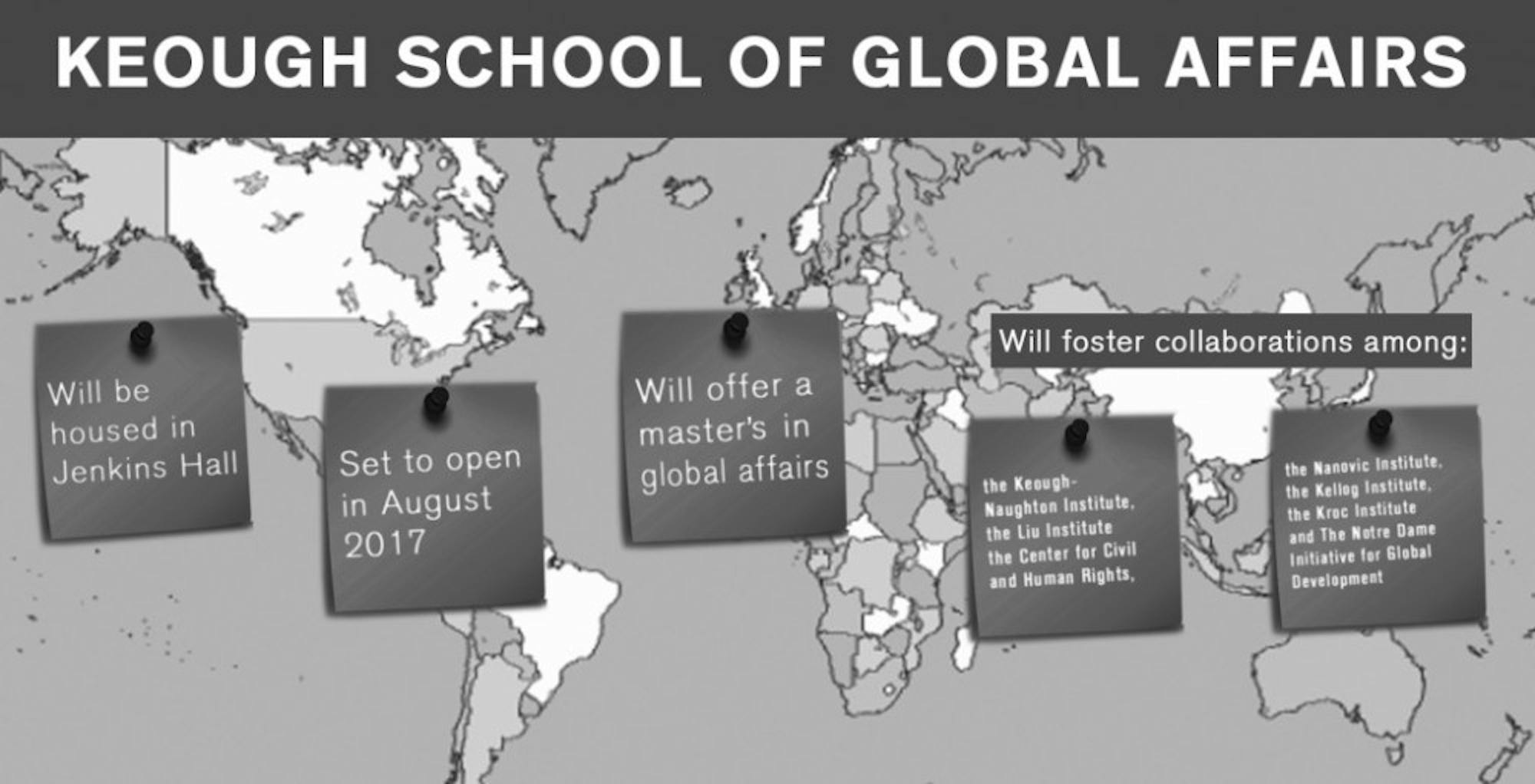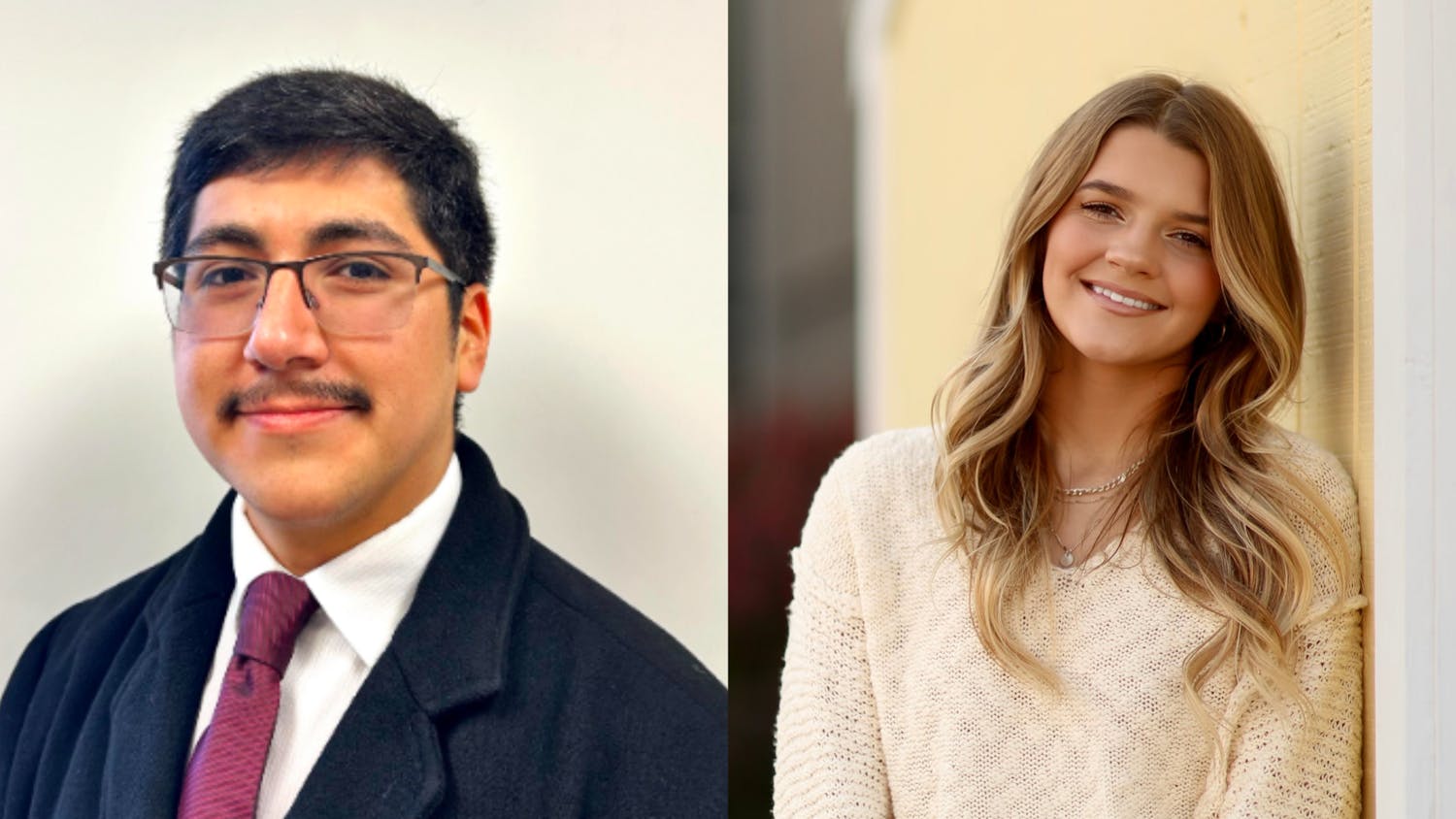Last week, the University announced the creation of the Donald R. Keough School of Global Affairs and the appointment of history professor R. Scott Appleby as the Marilyn Keough Dean of the school.
“Notre Dame has some very impressive international institutes, and it is time for those institutes to become one unit of collaboration in research, teaching and public service,” he said. “The goal will be to develop programs and curricula that enhance each of these international institutes and help them deepen their respective intellectual missions precisely by working on their larger, more sustainable projects that they could not attempt alone."
The Keough School will also work with the current colleges and schools within the University as well as Notre Dame International on research projects, Appleby said.
“One reason for [creating] the school is to leverage the remarkable strength we already have in international and global affairs,” he said. “Another way to do that is to see the Keough School and position the Keough School as a catalyst for research that brings units across campus, beyond the school, into collaboration, such as Mendoza College of Business, the College of Science, the College of Arts and Letters, the Law School and the College of Engineering into certain projects that draw on many disciplines and methods of research.
“Another goal for the school is to more fully globalize Notre Dame’s campus, to increase the number of international students and faculty, language training, research that engages countries far from the United States. The Keough School’s close partner in this initiative will be Notre Dame International and especially its array of global gateways.”
Appleby said the Keough School aims to bring the University’s influence as an institution of academic excellence with a concern for social change to the field of global affairs.
“We need to be appropriately modest because we’re just starting, but we still need to be bold enough as a university to believe that Notre Dame offers something distinctive and necessary to the field of international studies and global affairs,” he said.
The Keough School's mission is founded on the theme of "integral human development," Appleby said.
“Like the other basic concepts of Catholic social teaching, this idea is rooted in the Gospel, but speaks to and engages all people of any and every faith tradition,” he said. "It’s also a quite practical vision, in that the mission of advancing integral human development is in response to half a century of efforts to eradicate poverty, resolve deadly conflicts, provide adequate healthcare and defend human rights.
"Half a century of efforts — but efforts that have failed, to greater or lesser degrees because they ignore the fact that people come from a particular place and must participate in their own development by drawing on their spiritual, religious, ethical and cultural as well as their material resources.”
Appleby said the opportunities that will be available to undergraduates through the Keough School are still under discussion.
“Colleagues across campus will be deliberating this question during the coming months, so nothing is yet fully resolved,” he said. “However, we know that our undergraduates will be living and working in a fully globalized world and that they are eager to integrate the experiences and histories and professional perspectives of people all over the world into their own study.
“We’re all aware that our undergraduates are savvier than they’ve ever been about what it means to live in a globalized world, in a globalized setting, where they will be relating to others not only on a local or national level, but through many transnational platforms.”
Particularly, the College of Arts and Letters will be in close collaboration with the Keough School in designing programs of study for Notre Dame undergraduates, Appleby said.
“I know that all of the deans are thinking of ways to better prepare our undergrads for this exciting new world,” he said. “There’s no doubt that the Keough School of Global Affairs will play a part in the undergraduate course offerings and programs in the College of Arts and Letters in the future, and perhaps in the other colleges as well.”
The core academic program of the Keough School will be a master’s program in global affairs, Appleby said, and the faculty of the school will be comprised of current University faculty and new hires.
“We already have several faculty working in areas related to global affairs, many of whom are affiliated with these international institutes like Kroc, Nanovic, and Keough-Naughton,” he said. “We hope to hire 15 or more new faculty over the next number of years who will help us plug some gaps in our regional expertise and in policy studies and in various forms of professional practice related to development, human rights, peace building and governing."
With the addition of the Keough School, Notre Dame will join several other prestigious universities in establishing a school for global affairs, Appleby said.
“There are 10 to 12 good or very good schools of this sort, and some of the leading ones are much bigger and certainly older than the Keough School,” he said. “In fact some have such a long history and have committed themselves to certain kinds of programs that they are still attempting to adapt their faculty and programs and placements to the post-9/11 world."
Appleby said the Keough School has an advantage in its ability to set a direction that can best address contemporary and future needs.
“We’re brand new, and we’re in many ways just starting,” he said. “But we’re going to build it in a way that reflects the world as it is today, not as it was during the Cold War, not as it was after the Cold War but before 9/11.”
One of the specializations of the Keough School will be the study of religion’s influence on global affairs, an area which has not been adequately addressed by other universities’ programs, Appleby said.
“Religion has become increasingly important in global affairs in so many respects,” he said. “From figuring out how to deal with ISIS, on the troubling side of things, to how to position terrific faith-based organizations like Catholic Relief Service even more prominently, on the positive side."
"Princeton, Columbia, Harvard [and] Stanford, still don’t really provide a first-rate education in the role of religion in global affairs, and Notre Dame will do that," Appleby said. "And it’s more important now than ever to do so.”
University creates global affairs school
Emily Danaher | The Observer
Emily Danaher | The Observer








